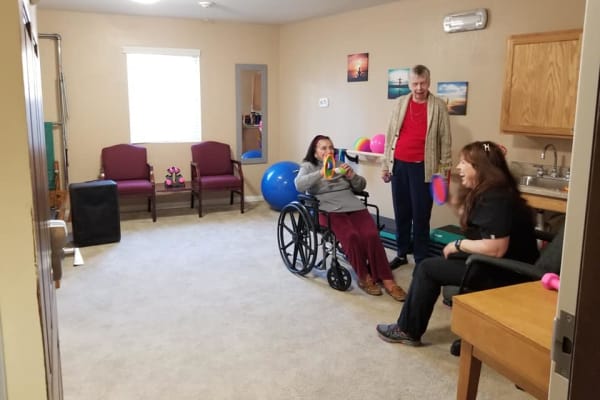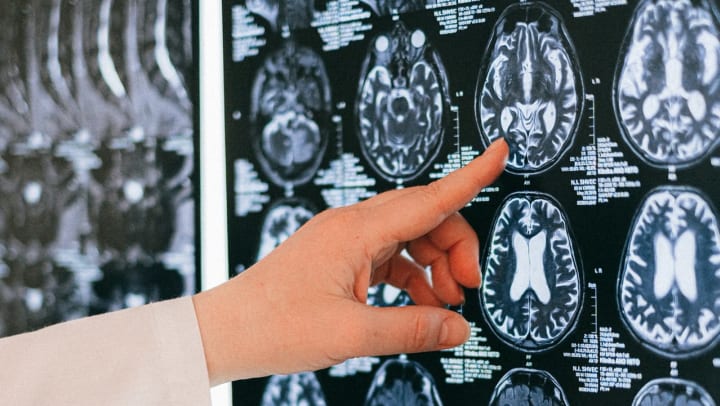Is a Neurologist Needed For Dementia Patients?
If you notice that your loved one is showing signs of memory loss, it is not uncommon to schedule a visit with their primary care physician. That physician will perform a battery of tests to determine if they are suffering from dementia or memory loss. Once a senior has been diagnosed with memory loss, the next step is often to seek out a specialist for help. One of these specialists is a neurologist. This article will explore how a neurologist can help your loved one.
What Does a Neurologist Do?
A neurologist is a medical doctor that specializes in diagnosing, treating, and managing disorders of the brain and nervous system, such as migraine headaches, epilepsy, Parkinson’s disease, stroke, and Alzheimer’s disease. The neurologist will perform tests as part of an evaluation (vision, speech, strength, gait, coordination) and can also order tests or imagining (CT or MRI). These tests can determine if the memory loss is due to a condition that is causing similar symptoms to Alzheimer’s disease, such as tumor, evidence of stroke, severe head trauma, or a buildup of fluid on the brain.
When to See a Neurologist For Alzheimer’s
Forgetfulness, in and of itself, does not necessarily require seeing a physician. As we age, it is natural to not be able to remember everything. But there are more serious indicators that should make you consider an appointment with a specialist. It is a good rule of thumb to always consult your doctor first.
-
Increased or sudden confusion - Sudden confusion, or delirium, can be a sign of many different health problems. If a loved one suddenly loses sense of time or date, or gets lost often, it can indicate a change in health.
-
Depression - When a senior becomes suddenly withdrawn and seemingly does not care about the most important things in their life, it is a warning sign. The depression could be as easy to solve as loneliness, or the death of a friend or pet. But if there is seemingly no reason for it, it can signal a change in mental state.
-
Inability to recognize people - Though rare, a sudden inability to recognize close friends of loved ones can occur. When this happens, immediately contact a healthcare professional.
-
Behavioral changes - If a bright and friendly person suddenly becomes quiet and withdrawn, or conversely should an introverted person suddenly become manic and gregarious, this change can hint at a hidden medical condition and should be investigated.
-
Difficulty communicating - When a person has difficulty communicating it may manifest itself as simply mumbling, but could become rapidly speaking in an incomprehensible way, or undecipherable nonsensical words. Losing the ability of coherent speech is an immediate sign that something is wrong.
How to Choose a Neurologist For Dementia & Alzheimer’s
Choosing a specialist is not an easy task. First of all, consult with your primary care physician. They will have partnered with these specialists in the past, and can usually make a good recommendation. Secondly, make sure that they work with your specific insurance. Specialists can be expensive and you’ll want as much of that covered as possible. Third, you can interview several specialists and choose the one that best suits you!
Primary Care is Not Enough
Once you’ve met with your primary care physician and dementia is suspected, it is recommended that you see a specialist to receive a proper examination and diagnosis. There are many different kinds of medical professionals including nurse practitioners, physician’s assistants, neurologists, etc., and trying to find the right one can be a long and tedious experience. There are many different dementia-specific specialists:
Types of Dementia & Alzheimer’s Specialists
-
Geriatrician - these are physicians that have additional training in geriatric medicine, serving those over 65. They do not focus on neurology or dementia, but may be able to find other issues that are causing the concerning symptoms.
-
Geriatric Psychiatrist - These are psychiatrists that focus on older adults, typically 65 and older. These physicians can be helpful in ruling out other causes of memory loss, such as depression, and help in treating dementia related behaviors.
-
Neurologist - These medical professionals are trained in nervous system disorders, including issues with the brain, spinal cord, and peripheral nerves. They may have a primary focus on conditions such as pain management, seizure disorders, or Parkinson’s Disease.
-
Neuropsychologist - These physicians are able to administer tests to assess memory, attention, reading, language and problem solving skills. They can then describe activity and treatments in preserving the remaining memory, as well as coping with the memory loss.
Preparing For a Visit with a Neurologist
When preparing for a visit with a neurologist, you should be prepared for both a mental evaluation and a physical exam. The mental exam will check: Mental status, speech, vision, strength, coordination, reflexes and sensation. A physical exam will be conducted and a battery of tests should be expected. These tests can include blood and urine tests, CT or MRI imaging tests, an EEG or EMG test, possibly a spinal tap or lumbar puncture, or possibly a nerve biopsy if there are neuromuscular disorders. Before visiting be sure to write down all of your symptoms and other health information including your medications, allergies, family history, and previous illnesses.
Memory Care with Ridgeline
Our community practices Ridgeline’s Moments Memory Care program. Ridgeline Management Company’s signature program, “Moments” is developed to meet the needs of each of our residents through all stages of dementia. The program will attempt to maintain a safe, secure, and predictable environment that fosters a sense of independence and well-being. It will improve residents’ self-esteem through meaningful activities designed around each person’s interests, talents, and abilities.
At Ridgeline, we train our caregivers within to educate them in all stages of dementia (early, middle, and late). Not only will we teach our caregivers how to take care of the residents but also themselves. Because let’s face it, caring for others is hard work.
Our Memory Care Neighborhood is a place for our residents to receive the support and assistance they need, while feeling as much “at home” as possible. The goal of “Moments” program is to design an environment for our residents living with dementia to maximize awareness and orientation. We are here to help retain abilities and maintain their independence as long as possible. It is designed to fulfill Ridgeline’s mission: creating an environment where moments of joy, independence, and wellness provided each and every day.
Alzheimer's and other age-related dementias are defined as a set of symptoms resulting from a degenerative brain disease. It manifests itself in a progressive loss of memory, language and judgment.
Despite progressive losses, we believe the memory-impaired can still continue to learn, communicate effectively, and live a purposeful life. Each person's life story is unique and we hope to have the opportunity to help them tell it and continue to write it!


